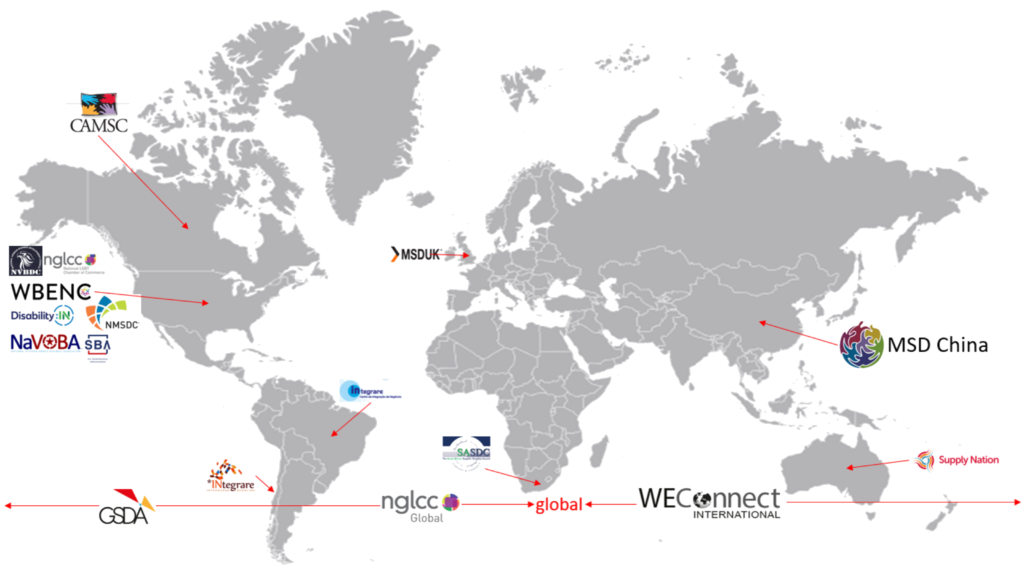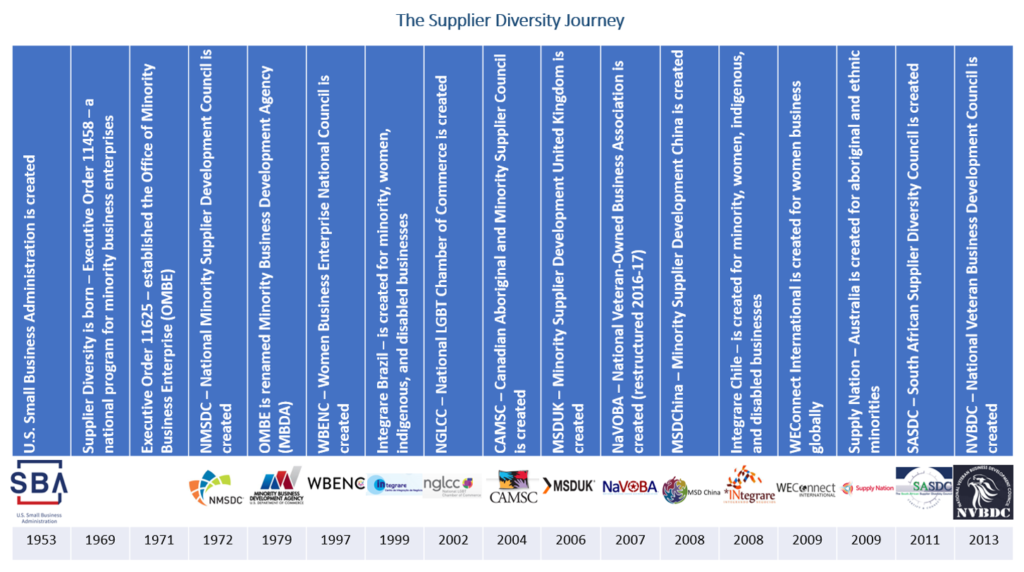SUPPLIER DIVERSITY’s BIRTHDAY is: March 5, 1969. On that day, US President Nixon signed E.O.11458 creating the first official Supplier Diversity program at a national level. The history of business development and inclusion started a decade-and-a-half before that with a government focus on small businesses, through the creation of the Small Business Administration (1953) and the Office of Veterans Business Development, which was added to the SBA (1953). The Civil Rights movement (1940s through 1960s) continues today through social justice, inclusion, and equity. And, there is more to do.

Supplier Diversity promotes inclusion of diverse and small businesses as a business imperative and provides three levels of return: Return on Investment, Return of Innovation, and Return on Inclusion. A diverse business is 51% or more, owned, controlled and actively managed by individuals who are diverse. There are eight major categories with various sub-categories. those eight include ethnic minority, aboriginal and indigenous people, women, military veterans, individuals with disabilities, people who are LGBTQI, and small businesses.
There is a body of empirical data demonstrating that supports that there is an increased positive impact to profit when there is a greater commitment to inclusion of diverse businesses in the supply chain. Advocacy organizations have been assisting diverse and small businesses globally and are growing the focus on business development.
The major milestones over the 51-year vital journey to inclusion of all businesses into supply bases includes:

- 1953 – U.S. Small Business Administration is created
- 1969 – Supplier Diversity is born – Executive Order 11458 – a national program for minority business enterprises
- 1971 – Executive Order 11625 – established the Office of Minority Business Enterprise (OMBE)
- 1972 – NMSDC – National Minority Supplier Development Council is created
- 1979 – OMBE is renamed Minority Business Development Agency (MBDA)
- 1997 – WBENC – Women Business Enterprise National Council is created
- 1999 – Integrare Brazil – is created for minority, women, indigenous, and disabled businesses
- 2002 – NGLCC – National LGBT Chamber of Commerce is created
- 2004 – CAMSC – Canadian Aboriginal and Minority Supplier Council is created
- 2006 – MSDUK – Minority Supplier Development United Kingdom is created
- 2007 – NaVOBA – National Veteran-Owned Business Association is created (restructured 2016-17)
- 2008 – MSDChina – Minority Supplier Development China is created
- 2008 – Integrare Chile – is created for minority, women, indigenous, and disabled businesses
- 2009 – WEConnect International is created for women business globally
- 2009 – Supply Nation – Australia is created for aboriginal and ethnic minorities
- 2011 – SASDC – South African Supplier Diversity Council is created
- 2013 – NVBDC – National Veteran Business Development Council is created
The forever-story of inclusion is being written by all levels of corporations, governments, and advocacy organizations. There is an evergreen role for the inclusion of diverse and small businesses into supply chains. Diverse and small businesses are vital to the work we all do together. Chambers of Commerce play an important role in the inclusion conversation everywhere (and they are too numerous to list). And, there is much more to do, inclusively! Celebrate this birthday, and let’s make this next year and this next decade matter.
About the Author: Michelle Morin is the Global Procurement Leader – Supplier Diversity & Sustainability for Corteva Agriscience.
